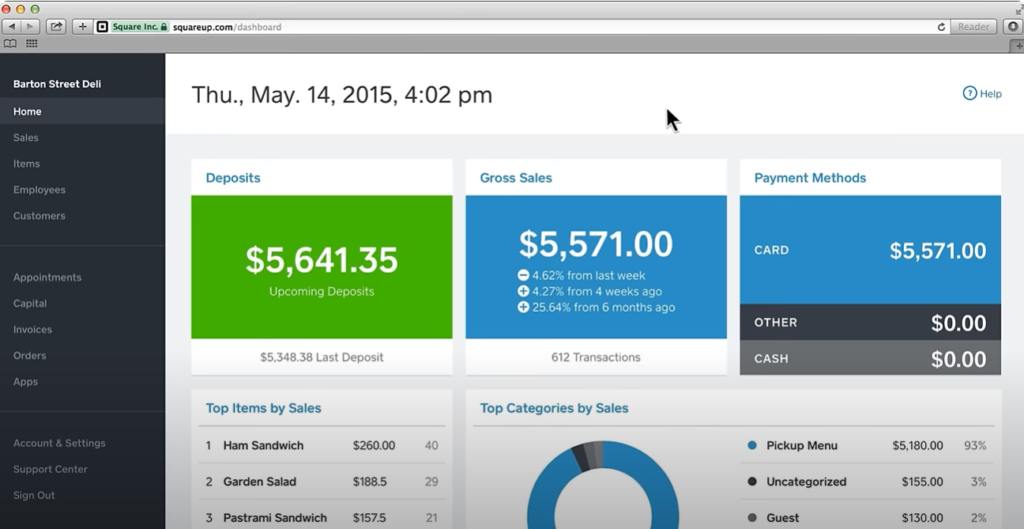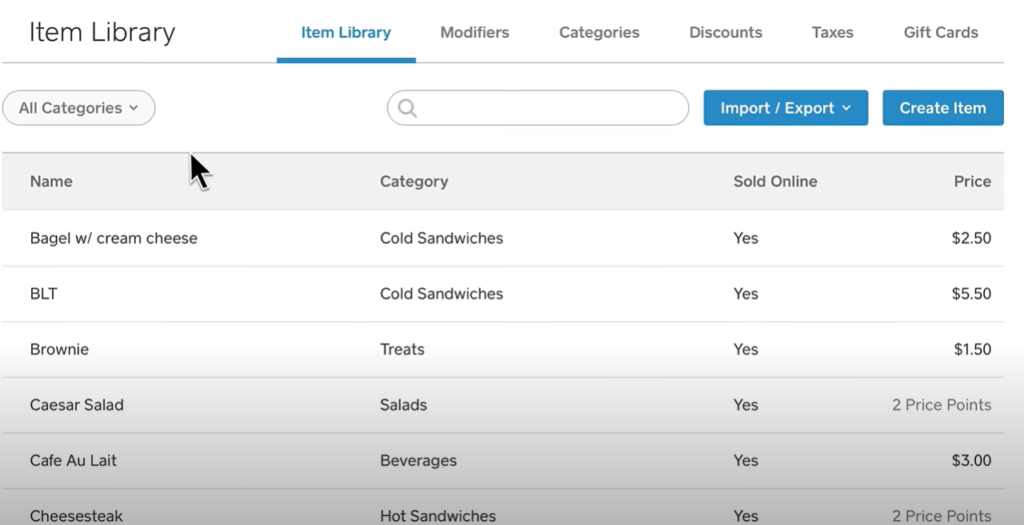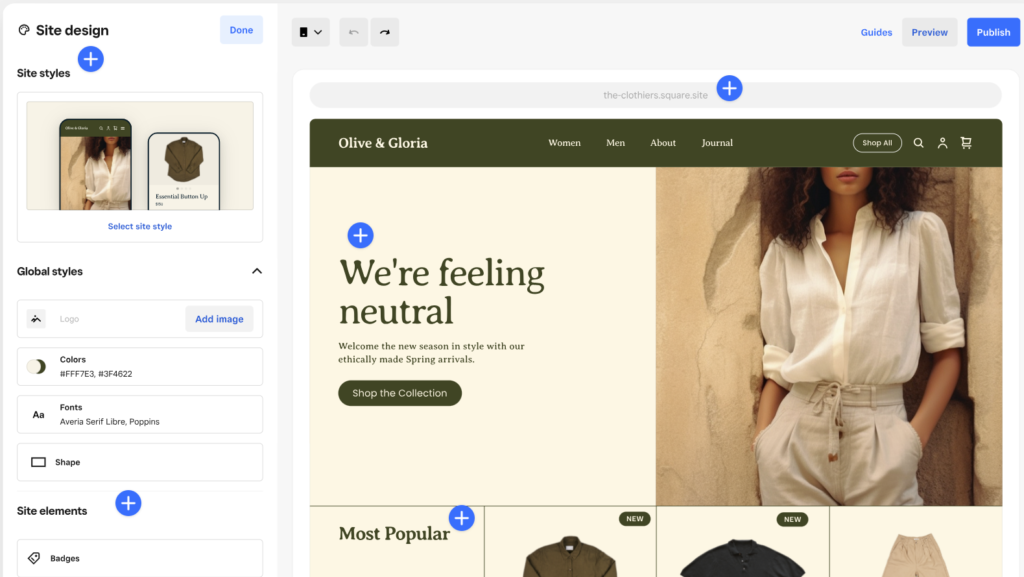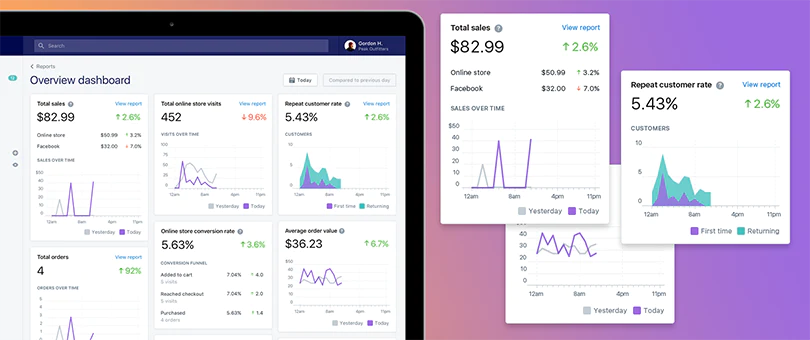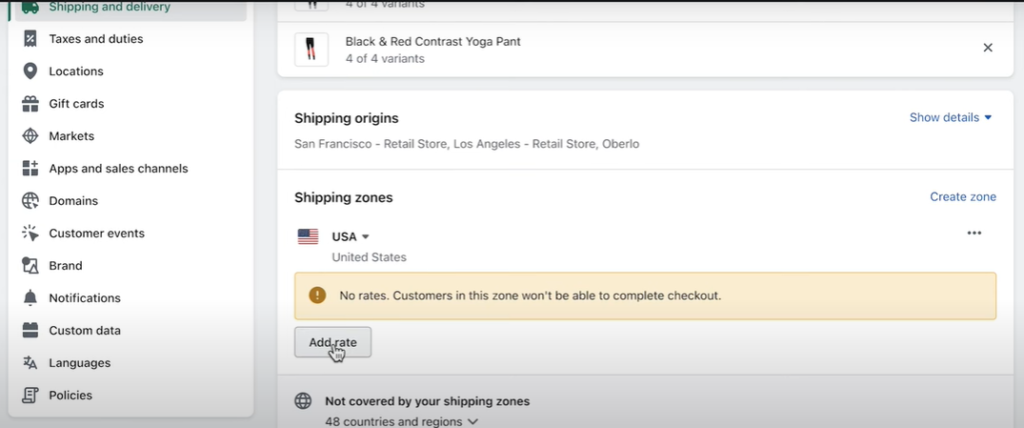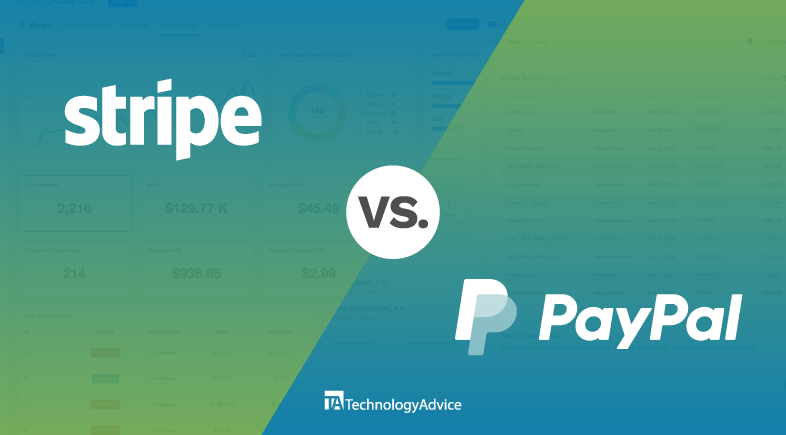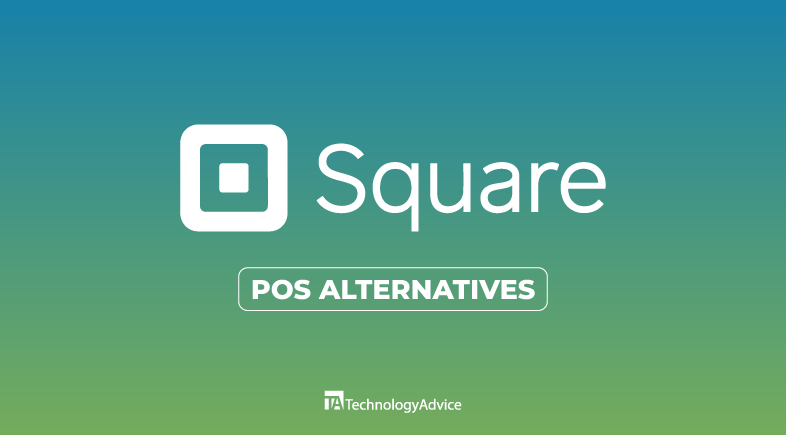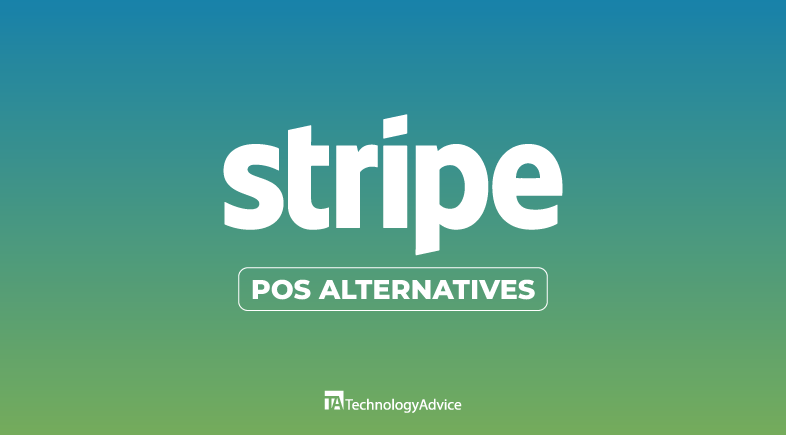Key takeaways
- Shopify and Square are two of the most popular point-of-sale (POS) system providers and ecommerce store platforms.
- Square is best for businesses that primarily sell in-store and may need a simple online store.
- Shopify is best for businesses that focus on ecommerce sales and may also need in-store payment processing.
Businesses that sell in-store and online need a reliable multichannel POS system and a good online site builder that is seamlessly integrated. Square and Shopify are two of the top options for small businesses, entrepreneurs, and online sellers looking for a reliable platform for their ecommerce and POS needs.
I compared Square vs Shopify and looked at their key differences and how each can fit different business needs.
Square vs Shopify: Key differences


Monthly fee
Starts at $0
Starts at $5
Payment processing
- Flat rate
- Square Payments only
- Depends on payment processor and Shopify plan
- Shopify Payments for POS; also compatible with third-party processors
Online store
Basic website builder with limited customization included in the free plan
Simple online store included in the lowest plan
Hardware options
- Free magstripe reader
- Paid devices start at $49
- Tap to Pay on iPhone and Android
- No free device
- Prices start at $49
- Tap to Pay on iPhone
Customer support
- Mon to Fri phone support
- 24/7 automated chat support
- Seller community
- Resource library
- 24/7 phone support
- Community forum
- Resource library
Expert Tip
Are Shopify and Square not right for your needs? Check out our list of the Best POS systems for business.

Square: Best for in-person sales
Overall Score
4.03/5
Pricing
4.69/5
Hardware
4/5
Features
3.5/5
Support and reliability
3.13/5
User experience
4.38/5
User scores
4.5/5
Pros
- Basic plan requires no initial upfront costs
- Free online store and POS software
- Free card reader
Cons
- Limited customer support hours
- Shipping tools are for higher plans only
- Only works with Square Payments as its payment processor

Shopify: Best for ecommerce sales
Overall Score
4.06/5
Pricing
3.44/5
Hardware
4/5
Features
4.25/5
Support and reliability
4.38/5
User experience
3.75/5
User scores
4.57/5
Pros
- Customizable website with or without coding
- Wide range of apps on the marketplace to extend online store and POS functionality
- Local shipping options even with the lowest plan
Cons
- Functionalities like shipping calculator and low-stock alerts only on higher plans
- No free plan
- Additional transaction fees with third-party processors
Square vs Shopify: A detailed comparison


Ecommerce monthly fees
$0–$79
$39–$399
POS monthly fees
$0
$5–$89
Transaction fees
Starts at 2.6% + 10 cents
Starts at 2.4% + 30 cents
Hardware options
- Free magstripe reader
- Paid devices start at $49
- Standalone terminal costs $299 or $37 in 12 months
- Tap to Pay on iPhone and Android
- No free device
- Prices start at $49
- Standalone terminal costs $299
- Tap to Pay on iPhone
Payment processing
Square Payments only
Shopify Payments or third-party payment processor
Key features
- No chargeback fees
- Industry-specific POS
- Online ordering and online booking sites
- 8,000+ integrations
- Cryptocurrency payments
- Highly customizable online store
Customer support
- Mon to Fri phone support
- 24/7 automated chat support
- Seller community
- Resource library
- 24/7 phone support
- Community forum
- Resource library
Square vs Shopify Pricing
The main difference between Square and Shopify POS when it comes to pricing is that Square offers a free plan, while Shopify does not. Shopify’s lowest plan requires a monthly fee, unlike Square’s basic free plan, which allows you to start your online store and start accepting payments immediately.
Both Shopify and Square offer discounted processing fees for high-volume sellers, and contracts are month-to-month. For payment processing, their transaction fees are very similar, with some small differences across plans. The payment processing fees of Shopify’s Basic plan match Square’s Free plan. The two plans have the same online and in-person processing fees, but Square will come out cheaper with its $0 monthly fee compared to Shopify Basic’s $39 monthly fee.
Unlike Square, which is locked in with Square Payments as its payment processor, Shopify allows the use of third-party payment processors instead of its built-in processor, Shopify Payments. However, using a third-party payment processor will incur add-on transaction fees ranging from 0.6% to 5%, depending on the plan.
Square vs Shopify Hardware
When it comes to POS hardware devices, Square is also slightly ahead of Shopify. Square comes with a free magstripe reader and accepts Tap to Pay for both Android and iPhone. Businesses can immediately start accepting payments without paying for any POS device.
Although Shopify does not provide a free device, it accepts Tap to Pay for iPhone. With a compatible iPhone device, Shopify users can immediately start accepting payments by using their iPhones as card readers.
Read more: Best POS Hardware for Business
Square vs Shopify Features
When comparing Shopify and Square’s features, both platforms offer easy-to-use solutions for online store capabilities. Shopify shines with its full-featured online store functionality, available from its Basic plan and up, which allows businesses to establish a professional and customizable online presence with ease.
In contrast, Square Online is free with limited features and requires upgrading to a Plus plan for full online store functionality. This may present a limitation for businesses on lower-tier plans but may be useful for starting businesses that are still just finding their footing with their online business. Additionally, Shopify provides the flexibility of using a custom domain across all plans, offering businesses greater branding opportunities compared to Square’s restriction to higher-tier plans.
In terms of shipping features and tax calculation, Shopify emerges as the superior option. Shopify offers excellent shipping capabilities and automatic tax calculation based on location, which speeds up processes. Conversely, Square’s shipping features are decent, but its manual tax calculation may pose challenges for businesses dealing with multiple tax jurisdictions. Plus, Shopify also offers higher shipping discounts.
Moreover, Shopify boasts extensive inventory management tools that businesses can use to efficiently track and manage their stock levels across all plans, whereas Square’s inventory management is only available for its Plus plans and above. Overall, while both platforms offer valuable features for businesses, those who mainly sell online will find Shopify to be a more comprehensive and versatile solution.
Square vs Shopify Customer support and user reviews
Both Shopify and Square offer excellent support resources and receive positive feedback from users. Square provides phone support from Monday to Friday, along with an automated chat support system available 24/7. Additionally, Square has a seller community and resource library, offering users opportunities to connect with peers and access helpful resources for optimizing their experience.
For those who prefer to have access to live help anytime, Shopify offers 24/7 phone support, a community forum, and a resource library, providing users with multiple channels to seek assistance and engage with the platform’s community.
When it comes to user reviews on platforms like Capterra, G2, and SoftwareAdvice, both Shopify and Square receive high ratings, reflecting their overall satisfaction among users. While Square’s ratings consistently hover around the 4.6 out of 5 range across these platforms, Shopify also maintains strong ratings, typically ranging from 4.4 to 4.6 out of 5.
These positive reviews highlight the effectiveness of both platforms in meeting users’ needs and delivering value through their respective features, customer support, and overall user experience.
Ultimately, businesses considering Shopify or Square can feel confident in their choice, knowing that both platforms have garnered positive feedback and offer reliable support resources to assist users along their ecommerce journey.
Shopify vs Square: Which is right for your business?
For businesses operating in-store: Square
When deciding between Shopify and Square for your business, consider your primary sales channels and the level of emphasis on ecommerce. Square is an excellent choice for businesses that primarily operate in-store and require a simple online store as an additional sales channel. With its user-friendly interface and straightforward pricing, Square offers seamless payment processing solutions that cater to brick-and-mortar establishments.
For businesses focused on ecommerce sales: Shopify
On the other hand, Shopify is the preferred option for businesses that prioritize ecommerce sales and may also require in-store payment processing capabilities. Its robust ecommerce tools, extensive app marketplace, and advanced features make Shopify the ideal platform for businesses looking to establish and grow their online presence effectively.
Whether you’re a retail store looking to expand online or an ecommerce-focused business seeking comprehensive solutions, choosing between Shopify and Square ultimately depends on your specific business needs and sales strategy.



